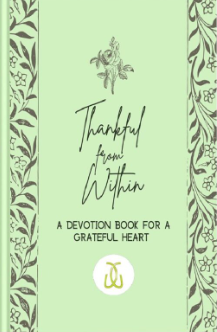
THE ROAD TO SUCCESS IS KNOWING YOURSELF
Frequently, personality tests are used to obtain insight into the identities and motivations of individuals. From an employer’s viewpoint, knowing a prospective recruit’s personality may throw light on their work style and how well they may fit into the company’s work culture.
For small business owners, poor hiring choices might be more expensive and disruptive for their bigger competitors. Businesses are increasingly resorting to personality testing to assist them in choosing the best position for their employees. But how can you utilize personality tests to determine if a recruit fits your company?
Mins to Read: 15 – 18 Mins
Age Bracket: 18-50

As stated by Henry Ford in this famous remark, taking responsibility in business is not only the proper thing to do but also the most remarkable thing to do. Being a businessman should look after not only the money you’re getting but also the people you’re working with, the growth you’ve had since then, and the other things that come to exist because of your company.
What is a Personality Test?
Personality assessments, which have their roots in psychology, have been used to evaluate better character qualities in various contexts, including, if not mainly, the workplace. Mental health specialists may help foster healthy interpersonal interactions, personal growth, and psychiatric diagnoses. Many personality tests that have gained popularity throughout the years are still in use or are readily available online.
Employers often utilize the findings of personality tests to assess whether a job prospect would fit inside the organization and which jobs such candidates may fill. As an alternative, companies may utilize these exams to evaluate teams’ and people’s capacity for collaboration.
The Origins of Personality Tests
Hippocrates proposed in approximately 460 B.C. that individuals have a ‘persona’ consisting of four temperaments. He hypothesized that whatever fluid was more prominent in a person dictated their ‘humor’ and, consequently, their distinct personality.
In 1879, Wilhelm Wundt, the father of “Psychology” and the first person to make a clear separation between the human body and human personality theory. The emergence of the psychodynamic method in the late 19th century caused a radical shift in how we perceived and comprehended personality in social contexts involving a group of individuals.
Sigmund Freud, the pioneer of the psychodynamic method, proposed that human personality is far more complicated than was previously believed and that our intrinsic wants and desires guide our behavior and personality.
Carl Jung postulated that there are just four human personality preferences: sensing, intuition, thinking, and emotion, and that these choices determine our personality. The 1900s saw an upsurge in interest in personality testing, evaluations, and typing in the workplace. As a result, they obtain more profound knowledge of one’s personality, aid individuals in developing their emotional intelligence, finding the most suitable vocation, enhancing productivity and relationships, etc.
The Woolworth personal data sheet was the first modern personality test; the United States Army used it to determine whether recruits were prone to shell shock.
Personality testing, personality evaluations, and ideas of human personality have soared since the turn of the twentieth century. People are now quite acquainted with personality tests such as the Myers-Briggs test, 16 personalities, the big five, and different I.Q. tests.
Pros and Cons of Business Personality Tests
Business Personality Test Advantages
Numerous firms prefer to administer business personality tests to ensure they choose the ideal candidate for each position. How might a business personality test assist in selecting the most qualified candidate? Read on to discover the benefits of incorporating a business personality test into your hiring process.
Better Awareness of the Candidate
Personality tests may be used throughout the hiring process to understand the applicant better. It assists the recruiter in selecting the best applicant for the position. How? Assume you are searching for the best-qualified receptionist prospect. You may assess their qualifications for the job by reviewing their experience and CV. You understand, however, that you need practical communication skills to interact with customers and bosses. In addition, you want a receptionist with a calm attitude due to the anticipated commotion at the front desk.
Fast Recruitment Procedure
The recruiters may either review the resumes first, create a shortlist of applicants for the business personality tests, or have the candidates take the tests before reviewing the resumes. It depends solely on the recruiter.
The recruiting process does not slow when a corporate personality test is used. Yes, it may seem a lengthier process and an obstacle to hiring the applicant, but the load is less time-consuming and aids in hiring the best candidate for the position. Assume you hire a candidate based on their résumé and interview, and they seem qualified for the job. Two months into the work, the employee exhibits undesirable personality characteristics. What, then, do you do? Start searching for a new applicant. Why not administer corporate personality tests from the outset to avoid the possibility of bad personalities emerging in the future? Business personality tests enable you to choose the ideal applicant reasonably and reduce the likelihood of rehiring for the same position.
Eliminates Bias
Recruiters often acquire a preference for a particular prospect because of their charisma. Consequently, recruiters often make poor judgments because the prospects’ allure deceives them. These applicants may look impressive, yet you may not qualify them for the position for which they are being considered. Personality assessments in the workplace guarantee that recruiters are not biased when selecting applicants.
They may eliminate applicants based on their scores. They are not required to see their names or profiles. To continue the recruiting process, recruiters distinguish applicants with better scores from prospects with lower scores.
Business Personality Test Disadvantages
As a result of their belief that these tests are unreliable until a substantial amount of money has been invested in their development, several firms have chosen not to employ business personality tests as part of their hiring procedures. In their opinion, other recruiting methods, such as interviews and assessment centers, are more dependable than their own.
Here are some drawbacks to assist you in determining whether your organization’s recruiting process may face similar issues.
Lack of Authenticity
A typical business personality test will consist of multiple-choice questions (MCQs). This indicates that applicants have at least four alternatives from which to pick. Candidates know the position they are applying for, and excellent candidates research the company. This indicates that they are aware of the firm’s applicant requirements. So, as a candidate looking for a job you want, what do you anticipate doing?
You will choose the option most closely aligns with the personality traits that recruiters seek in their ideal applicant. This implies that applicants will select the option that demonstrates their vigilance and diligence if they believe the recruiter is seeking these qualities in their perfect candidate.
Consider that the corporate personality tests are so predictable that prospects may see through them and respond according to the recruiter’s preferences. In such a circumstance, such commercial personality testing is pointless since the whole purpose of assessing a person’s personality and getting to know them without faking it is rendered null and void.
Expensive
Business personality assessments may be expensive for a firm. Why? This relates to the point made before. There is no sense in a business establishing a predictable test that job hopefuls can quickly pass. Therefore, corporations have ensured that the exam is not transparent and that applicants provide honest (but not optimal) responses. To construct such testing criteria and a solid corporate personality test, firms must employ professionals who assist with developing the most influential personality test feasible for the position.
This procedure becomes rather time-consuming and expensive for the company. Therefore, many firms employ assessment centers rather than personality tests to evaluate applicants.
Eight of the Most Popular Personality Tests
It is not unusual to meet a personality test in the modern job hunt. Employers often utilize a variety of personality tests to determine the personality qualities of their workers. You may also use assessments of candidates’ personalities before employment to predict their probability of success. Among the most prevalent of these personality tests are:
- Myers-Briggs Type Indicator
The Myers-Briggs Type Indicator, sometimes known as the MBTI, is frequently utilized throughout the employment process. Its questions establish the applicant’s placement within four categories: extraversion against introversion, judging versus perceiving, intuition versus sensing, and thinking versus emotion. These groups assign test-takers to one of sixteen personality types. With 93 questions in all, it is a lengthy examination
- Caliper Profile
The Caliper Profile evaluates the relationship between an applicant’s or employee’s personality attributes and job performance. This personality test is often used in job screenings. When taking this exam, you will be requested to respond to questions in various forms, the most frequent of which will provide a series of assertions and ask you to choose the one that best reflects your beliefs. Other question types include true or false, multiple-choice, and a scale indicating the degree of agreement.
This evaluation considers a candidate’s possible negative and positive characteristics to create a complete picture of how they will perform in a given position. It may also be tailored to emphasize certain behaviors crucial to a particular profession or function.
- 16 Personality Factor Questionnaire
The initial edition of the 16 Personality Factor Questionnaire, often known as the 16PF, was published in 1949 by Raymond B. Cattell, Maurice Tatsuoka, and Herbert Eber. However, it has been altered throughout the years. It measures individual behavior and has several uses, including career development and employee advancement. It examines characteristics such as dominance, rule-consciousness, sensitivity, emotional stability, perfectionism, self-reliance, and adaptability.
- SHL Occupational Personality Questionnaire
The SHL Occupational Personality Questionnaire (OPQ32), commonly known as the SHL Occupational Personality Questionnaire, gives insight into how an individual’s personality characteristics and behavior may impact their job performance. It consists of 104 questions that assess 32 significant factors that affect an individual’s conduct at work: emotions, cognitive style and sentiments, and interpersonal interactions. The respondent chooses the one that describes them the most and represents them the least for each question.
Each participant receives a personalized report outlining their strengths and limitations and a graphical summary that you may use to compare candidates.
- Revised HEXACO Personality Inventory
Researchers created the HEXACO Personality Inventory more than two decades ago to evaluate the numerous elements of an individual’s personality and how they apply their theoretical interpretations to events.
It examines six crucial personality qualities: honesty/humility, emotional stability, extraversion, agreeableness, conscientiousness, and receptivity to experience. In the new edition, there are three choices for assessment duration: total length (200 questions), half-length (100 questions), and HEXACO 60. (60 questions).
- NEO Personality Inventory, Revised
2005 saw the completion of the most recent edition of the Revised NEO Personality Inventory. It assesses and evaluates the five essential qualities listed in the five-factor personality model: neuroticism, openness to experience, agreeableness, conscientiousness, and extraversion, with each of these five traits further subdivided into subcategories. For instance, neuroticism is characterized by susceptibility to stress, anxiety, sadness, impulsivity, and self-consciousness. Numerous features it assesses are crucial in the workplace, which has led to a rise in its usage as a screening instrument for employment.
- Personality Inventory of Eysenck
The Eysenck Personality Inventory evaluates a person’s personality according to two fundamental dimensions: neuroticism vs. stability and extroversion versus introversion. The findings contain three primary scores, labeled “E” (extroversion level), “N” (neuroticism level), and “lying,” which gauges honesty in the examination based on a desire for higher ratings. The complete test consists of 100 questions. However, there is also a variant with 57 yes/no questions.
- DISC personality test
Based on the categories Dominance, Influence, Steadiness, and Compliance (DISC), this test comprises 28 statements, each with four alternatives for the test-taker to score their level of identification with the statement, resulting in one of 12 personality types.
Why Business Personality Testing is Beneficial
Understanding your personality features may be valuable when choosing a job. Furthermore, this self-awareness may provide you an edge while being evaluated by prospective employers. Taking a personality test may assist you in the following:
- Understand your abilities and interests:
Having insight into your personality type helps illuminate the qualities you may emphasize on your resume and the skills you may like to develop.
- Identify probable job paths:
When contemplating potential training, college degrees, or future career transitions, a personality test may be helpful for directing your occupational growth.
- Present oneself favorably to potential employers:
Personality tests may be discussed throughout the interviewing process. Knowing your personality type beforehand might be advantageous so you can confidently describe yourself.
- Determine optimal working conditions and relationships:
You probably already know if you are more introverted or extroverted in a general sense, but having a more in-depth understanding of your personality type may help you determine which surroundings or relationships are most conducive to your success.
- Be aware of possible obstacles in a particular job position or setting:
Knowing what conditions are likely to be more challenging will help you prepare for or avoid them. You will also be able to concentrate on self-improvement if you are aware of the characteristics and circumstances most likely to provide you with challenges.
Researching the most acceptable evaluation exams for your organization may seem laborious, mainly if the approach is not a failsafe. However, personality tests are not meant to be a magical oracle that tells you if a possible recruit is ideal for the position. Their objective is to assist you in evaluating the potential of a prospective employee so that you may utilize this information, together with the individual’s résumé, interview(s), references, and background check, to evaluate whether they are the best choice for the position.
The results of a personality test should not be interpreted as a pass/fail grade. When seen as a little piece of a giant human jigsaw, the evaluation profile enables you to examine the candidate as a whole instead of only an SEO-optimized CV and an interview. In conclusion, the most excellent judge of your firm’s requirements is you, not a personality test. Additionally after you’ve gathered all the information, you’ll be able to make an educated, trustworthy conclusion.
And here’s a free personality test:
Free Business Personality Test | HoneyBook
FAQs
What are some quality-free personality assessments?
While some websites provide in-depth evaluations and suggestions for a fee, several free personality tests are available online. For instance, these are some excellent free personality tests:
- Berkeley Emotional Intelligence Quiz
- HEXACO
- The High 5 Test
- Big 5 Personality Test
- Character Strengths Survey
- Myers Briggs
- DiSC assessment
- Rorschach Inkblot Test
- Who Am I?
You may take most of these exams without creating an account or entering an email address.
Can personality testing result in productive employees?
As with any other survey, personality tests are only a tool, and their efficacy is contingent upon their use rather than the assessment itself. Psychologists argue the accuracy and reliability of many personality tests, including the MBTI, because many quizzes categorize people in ways that indicate that personality is fixed and immutable, as opposed to malleable.
However, these exams may disclose vital information about a person and encourage self-awareness and self-reflection, which workers can utilize to develop. Also, personality tests may be used as a team-building exercise that builds camaraderie and a feeling of identity or as a fun activity that helps all members get to know each other better.
MUST-READ AND SHARE!
2023 Your Practical Wedding Guide
Your Ultimate Access to Kuwait Directories in this COVID-19 Crisis
Investments and Finance Ultimate Guide
OFW FINANCE – Money News Update that you need to read (Table of Contents)
A Devotional for having a Grateful Heart
Stock Investment A Beginner’s Guide
How To Save Money Amidst Inflation
Philippines Best Banks with High-Yield Savings Return
Essentials Before Applying For a Credit Card
Credit Card Starter Guide for Beginners
If you like this article please share and love my page DIARYNIGRACIA PAGE Questions, suggestions send me at diarynigracia @ gmail (dot) com
You may also follow my Instagram account featuring microliterature #microlit. For more of my artworks, visit DIARYNIGRACIA INSTAGRAM

A multi-award-winning blogger and advocate for OFWs and investment literacy; recipient of the Mass Media Advocacy Award, Philippine Expat Blog Award, and Most Outstanding Balikbayan Award. Her first book, The Global Filipino Bloggers OFW Edition, was launched at the Philippine Embassy in Kuwait. A certified Registered Financial Planner of the Philippines specializing in the Stock Market. A recognized author of the National Book Development Board of the Philippines. Co-founder of Teachers Specialist Organization in Kuwait (TSOK) and Filipino Bloggers in Kuwait (FBK). An international member of writing and poetry. Published more than 10 books. Read more: About DiaryNiGracia

 FREE DOWNLOAD NOW!!!
FREE DOWNLOAD NOW!!!

Peace and love to you.